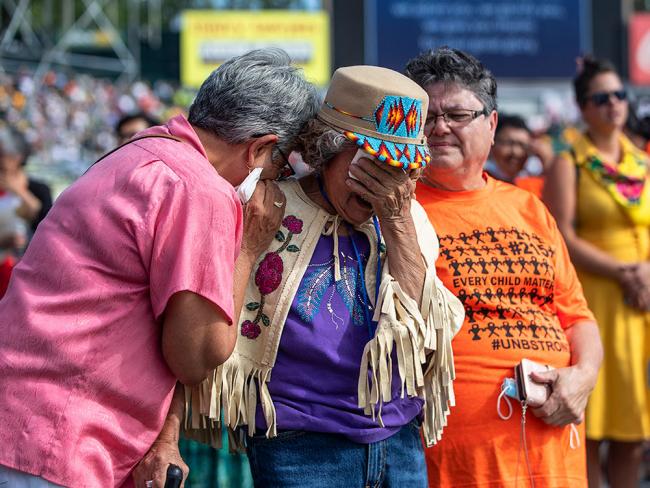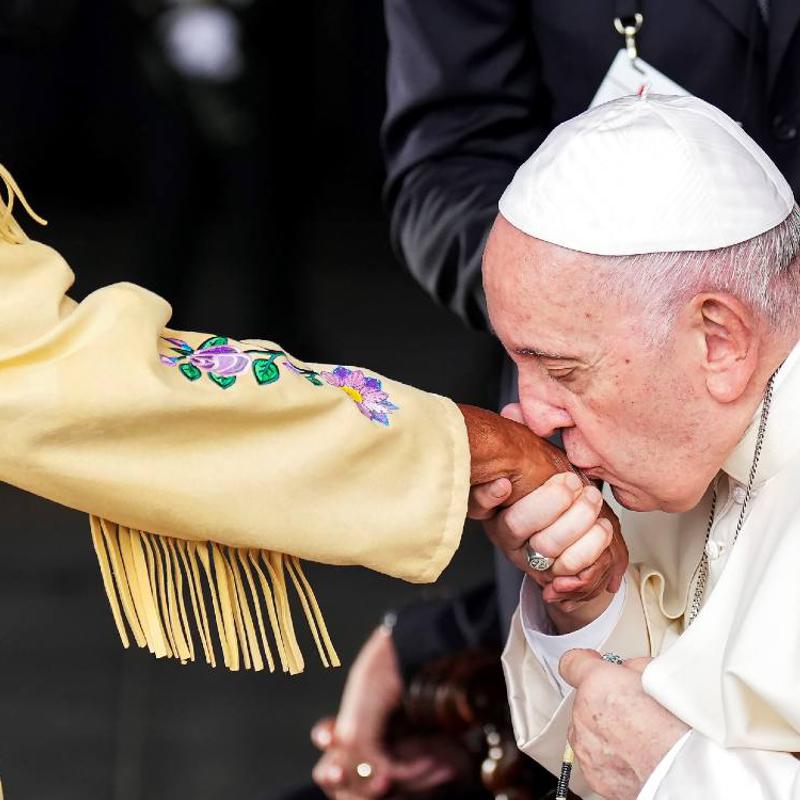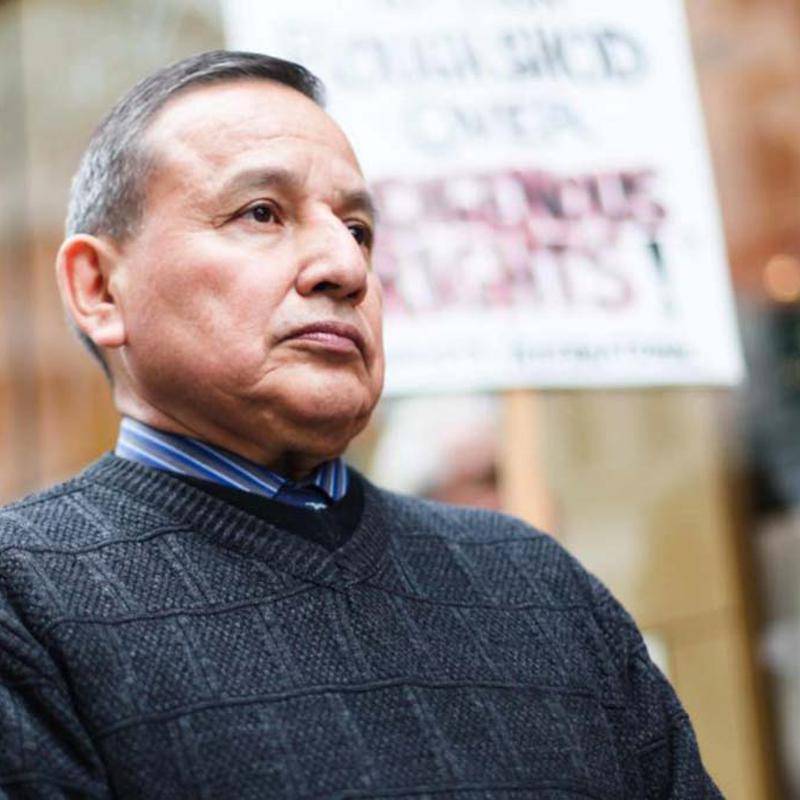Articles Menu

The fact is that the soul-saving missionaries believed the main job of their "educational" institutions was to "get the Indian out of the child." That cannot be divorced from the simultaneous imperialist project of getting "the Indian" off the land. And the shallowness, if not blatant hypocrisy, of the Papal apology cannot be divorced from the many current battles occurring today over pushing Indigenous peoples off their lands to make way for oil/gas wells, pipelines, mines, highways, etc. etc. etc. I Had the Pope come out against continuing, violent Indigenous displacement, I believe he would have at least appeared more sincere.
-- Gene McGuckin
July 26, 2022
[Tyee Editor’s note: We reached out Cindy Blackstock, who is Gitxsan and executive director of the First Nations Child and Family Caring Society of Canada, to ask if we could republish this powerful statement she posted today, and if she had any context to add. She wrote:
‘In addition to my equity work for First Nations children, I am a natural history buff and work on “Reconciling History” with Beechwood Cemetery, historians, TRC commissioner Marie Wilson and Project of Heart to erect historically accurate plaques at the resting place of key figures in residential schools. In my work on the Canadian Human Rights Tribunal case v. Canada to address the inequities in First Nations children’s public services, it is clear that Canada has repeatedly used apologies to quell public outrage only to continue similar abuses towards children. It started with residential schools, then the ’60s Scoop and since 2016 the tribunal has had to issue over 20 non-compliance and procedural orders versus Canada.’
‘In the case of the Papal apology — any apology that requires the victims to travel to Rome to get it deserves serious scrutiny to ensure it is not another empty apology. I am travelling in Australia and wanted to do something to ensure the Pope’s words have meaning — thus the list.’]
The Pope apologized for the Catholic Church’s role in residential schools. It was meaningful for some Residential School Survivors, and I am so grateful that it brought them some comfort. However, when victims must travel to Rome to ask for an apology greater scrutiny is needed to ensure the apology delivers justice for the victims and is not just a proforma release of responsibility for the offender. As an Elder eloquently told the Royal Commission on Aboriginal Peoples in 1996 “integrity is when words have meaning.”
The Pope’s apology began by recognizing the Governor General and the prime minister (which are both offices arising from colonialism) before mentioning the Residential School Survivors and the children who died to whom this apology is properly addressed. It talked about the future but was light on accountability and action and peppered with requests for God to forgive the Church. There is still time to ensure this apology has meaning so I am calling on the Pope to commit to the following actions on behalf of the Catholic Church and the Holy See:
Publicly rescind the 1493 papal bull “Inter Caetera” that gave effect to the Doctrine of Discovery “legalizing” the unjust taking of Indigenous lands worldwide and continues to be cited by courts and governments to legitimize colonial land title.
The First Nations, Métis and Inuit children who attended residential schools and suffered so deeply and those who died there deserve this and more.
Cindy Blackstock is a member of the Gitxsan Nation. She is executive director of the First Nations Child and Family Caring Society of Canada, a professor in McGill’s school of social work and director of the First Nations Children’s Action Research and Education Service at the University of Alberta.


[Top photo: Nancy Saddleman (centre), 82, cries as Pope Francis gives mass in Edmonton, during his papal visit across Canada on Tuesday. Photo by Jason Franson, the Canadian Press.]